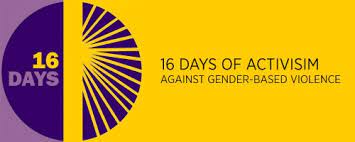
Taking action to address gender-based violence
Waterloo's 16 days of activism includes Dec. 6 online ceremony

Waterloo's 16 days of activism includes Dec. 6 online ceremony
By Carol Truemner Faculty of EngineeringMary Robinson was a Grade 7 student standing in a hallway of her Ottawa school when she heard about the Dec. 6, 1989 tragedy.
Only 11 years old at the time, Robinson recalls the “gut punch” she felt after finding out 14 women, mainly engineering students, were murdered during an anti-feminist rampage at École Polytechnique in Montreal.
“I was young, but it was still impactful for me,” she says. “It was really weird to think the women were killed because they liked science. But out of that feeling, I redoubled my determination to go into the field.”
After considering several career options, including becoming a veterinarian, Robinson decided to pursue chemical engineering at Waterloo where she earned her bachelor’s and master’s degrees.
Now an engineering lecturer, she served as associate director of first-year engineering for more than a decade before being appointed the Faculty’s first associate dean of outreach, equity and diversity earlier this year. One main focus of her position is helping build an inclusive culture that is free of barriers to allow everyone to reach their full potential.
It was two years after the horrific murders and numerous injuries to both men and women at École Polytechnique in Montreal that 16 Days of Activism against Gender-Based Violence was launched as an international campaign focusing on the prevention and elimination of violence against women and girls.
girls.
In Robinson's new role, she worked with Waterloo Engineering's outreach department to organize its first 16 days of Activism designed for participants to learn more about gender-based violence and how to address it on campus and beyond. Multiple people and groups on and off campus contributed to or supported this year’s initiative.
Some of the 16 days activities and events included a virtual screening of Picture a Scientist, a documentary raising visibility around gender bias and racism in the sciences, learning how to use pronouns to correctly reflect a person’s identity and a panel discussion entitled Coming Out in Engineering hosted by EngiQueers.
Arden Song, president of EngiQueers, says the five speakers, a Waterloo Engineering department chair, a data solutions and research program manager, a professional engineer with 30 years of experience in the transportation sector and two recent alumni, discussed their experiences with coming out as gay or transgender at the Dec. 2 initiative.
“There are so many incidents in which queer people don’t feel comfortable coming out. And tied into the 16 days campaign, the reason some don’t feel comfortable is that people can get violent or have other very negative responses,” says Song, a management engineering student who identifies as transgender.
"It’s important to talk about how educational and workplace environments can be safer and more welcoming so students and others can be themselves as much as possible,” Song adds.
For Robinson, the meaning of Dec. 6 has expanded over the years to focus on the importance of diversity.
“That includes the diversity of thought, the diversity of experience and the diversity of problem-solving techniques,” she says. “Everyone has a role to play.”
The University of Waterloo’s online ceremony to recognize the National Day of Remembrance and Action on Violence Against Women and honour the lives of the 14 young women killed in 1989 will begin at 10:30 on Dec. 6.
Hosted by Mary Wells, dean of Waterloo Engineering, speakers include Vivek Goel, the University’s president and vice-chancellor, Jean Becker, the University’s associate vice-president, indigenous relations, Bardish Chagger, member of parliament for Waterloo, Anita Davis, CFUW K-W president, and Catherine Fife, member of provincial parliament for Waterloo.
Fourteen current Waterloo Engineering students will say the name of each murdered victim and light a candle for her. Registration is required.

Read more
Waterloo co-op student applies engineering and tech skills at Caivan to support purpose-built housing and build land-development expertise

Read more
How Doug Kavanagh’s software engineering degree laid the foundation for a thriving career in patient care

Read more
Upside Robotics secures new funding to accelerate the future of sustainable farming
The University of Waterloo acknowledges that much of our work takes place on the traditional territory of the Neutral, Anishinaabeg, and Haudenosaunee peoples. Our main campus is situated on the Haldimand Tract, the land granted to the Six Nations that includes six miles on each side of the Grand River. Our active work toward reconciliation takes place across our campuses through research, learning, teaching, and community building, and is co-ordinated within the Office of Indigenous Relations.